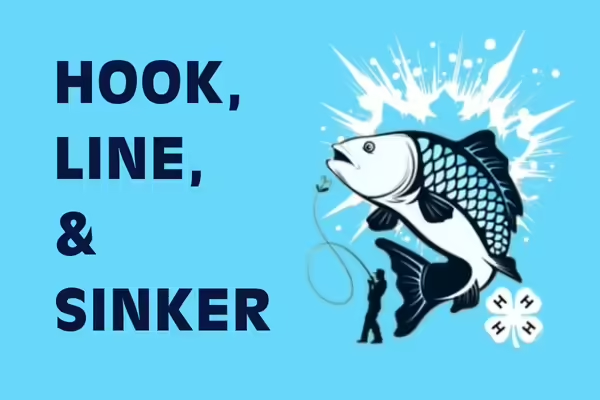
Elizabeth, IL – The University of Illinois Extension is excited to announce the launch of a brand-new Fishing Spin Club for youth entering grades 6 through 12. This engaging and educational program is designed to introduce young anglers to the fundamentals of fishing while encouraging outdoor exploration and environmental awareness.
Led by local fishing enthusiast Mike Iacomini, the club will cover a wide range of topics including knot tying, casting techniques, catch-and-release practices, tackle box assembly, fishing safety, aquatic ecosystems, and more. The program is ideal for beginners or those with limited fishing experience.
In addition to hands-on learning, participants will enjoy field trips and real fishing experiences, providing a fun and memorable way to build confidence and connect with nature.
“This club is a great opportunity for youth to unplug, get outside, and learn a lifelong skill,” said Angela Miller, Jo Daviess County 4-H Program Coordinator. “We are excited to have Mike and his expertise. I hope kids take advantage of this club- because we plan to have a lot of fun.”
An informational meeting will be held on Tuesday, July 8, 2025, at 6:00 p.m. at the Elizabeth Community Building, located at 402 West St., Elizabeth, IL 61028.
Registration is required by July 6 and can be completed online at https://go.illinois.edu/JDC4-HFishingClub or by calling 815-858-2273.
University of Illinois Extension develops educational programs, extends knowledge, and builds partnerships to support people, communities, and their environments as part of the state's land-grant institution. Extension serves as the leading public outreach effort for University of Illinois Urbana-Champaign and the College of Agricultural, Consumer and Environmental Sciences in all 102 Illinois counties through a network of 27 multi-county units and over 700 staff statewide. Extension’s mission is responsive to eight strategic priorities — community, economy, environment, food and agriculture, health, partnerships, technology and discovery, and workforce excellence — that are served through six program areas — 4-H youth development, agriculture and agribusiness, community and economic development, family and consumer science, integrated health disparities, and natural resources, environment, and energy.